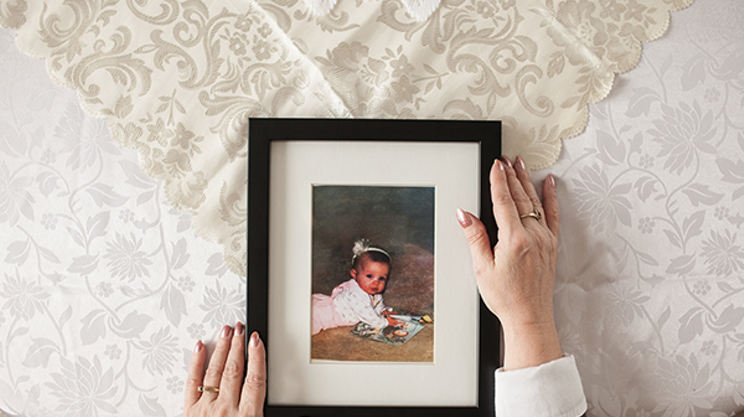
A year ago, Linda Emberley had dozens of questions about her past. This year, she has a dozen more.
In January 2019, Emberley told The Coast that due to laws in Nova Scotia, she had to wait to receive access to her adoption records. Under the Nova Scotia Adoption Act, records aren't public, but adoptees can apply for nonidentifying information. Nova Scotia is the only province in Canada with sealed records, but is currently reconsidering its stance.
In December 2019, Emberley finally received her files.
"Things don't make sense," she says. "There are missing pieces." Records show before she was adopted in the early 1970s, Emberley, now 50, was fostered by her adoptive parents.
It was there that she was starved, belittled and abused. Being malnourished she developed pica, a compulsive eating disorder where people eat things other than food, which in Emberely's case was her hair. Up until December, Emberley thought her adoptive parents had kept the abuse hidden.
She was wrong; Children's Aid Society, which oversaw her adoption, knew about it.
In one record, the Children's Aid Society withdrew their adoption consent based on questions about Emberley's welfare. Several times, IWK doctors noticed brushing or scratches on her face. When asked about it, her adoptive mother seemed anxious or didn't really answer the question.
"There are so many 'I don't knows'," says Emberley. "Why in the hell were these two people allowed to keep me? The abuse is there; the doctors knew, the nurses knew, the social workers knew."
For years after her adoption, Emberley was visited by Children's Aid workers, but after her adoptive mother refused to answer the door they never came back. In her records package, there isn't anything that says why.
"What's bothering me is, why in the hell didn't they bang on that door? Why didn't they call the police?" she says. "That was the last time they were there and from there it got worse."
The abuse continued until Emberley was eight and a teacher noticed. She was placed back in foster care and bounced around the system until she was 18.
Emberley thought her situation was an isolated case, but it isn't.
Fellow adoptee Catherine Vidito, 52, was also abused. She says while her adoptive father was kind, her mother was "horrible."
"It was bad," she says. "It was really bad."
Once, she was made to sit outside after peeing her pants until her father came home. Another time, her mother grabbed her arm so roughly her nails dug into the then-seven- or- eight-year-old's arm and left a scar.
Vidito said her home life ended up deteriorating so rapidly, she thought of suicide before the age of 10 and eventually started running away. She was later placed in the Nova Scotia School for Girls and a psychiatric hospital because she was said "to have a temper."
Unlike Emberley, Vidito doesn't have any of her records to show that Children's Aid knew of the abuse, but has looked into getting her non-identifying information. She'd like for records to be open so she and others can know their personal histories.
The Department of Community Services, which currently oversees adoption records, declined an interview but emailed a statement saying they can't comment on specific cases.
"The social worker reviews the information in advance of the release and, if the information being released includes possibly sensitive or difficult information, the social worker proactively develops a supportive plan including how to best deliver the information."
That doesn't change what happened to her and other children says Emberley, as it has "impacted my whole life," she says.
"Someone recently said to me, 'Well what do you want the province to do?' I want the province to say 'We're sorry.'"













